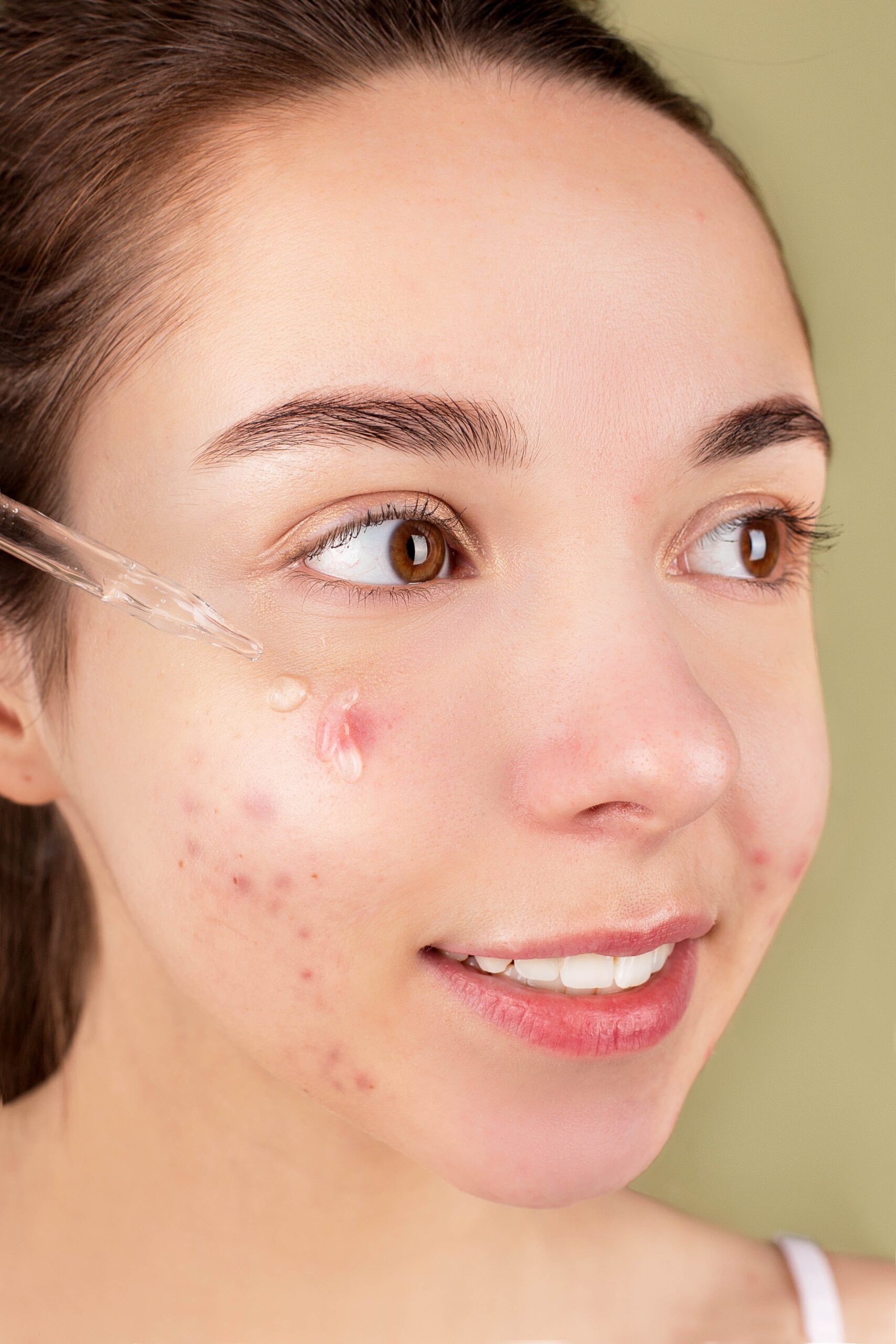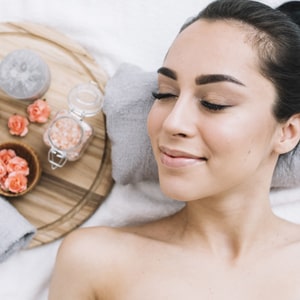
Welcome to Effective Acne Treatment, where you can start your clear skin journey. The quest for beautiful skin connects with the practice of self-confidence. This exploration welcomes you to learn about Effective Acne Treatments, a thorough guide to obtaining a blemish-free complexion and nurturing a beautiful, healthy glow. As we begin this transforming journey, we will discover the deep connection between confidence and clean skin.
We’re understanding that confidence comes from feeling comfortable with our blemish-free complexion. Together, we’ll explore the vast world of acne treatments, uncovering the keys to healthy, glowing skin. Join us on this powerful journey where skincare understanding and confidence come together, establishing a foundation for a refreshed and confident image of yourself. Confidence starts with the decision to embark on this clear skin journey—let the transformation happen.
Table of Content
I. Understanding Acne
Acne, a common skin condition, develops when hair follicles get clogged with oil and dead skin cells. Hormonal changes, genetics, and some substances all have an impact on its development. Understanding acne means knowing about its varied forms, which range from minor whiteheads and blackheads to more serious cystic lesions. Maintaining a regular skincare routine, avoiding excessive sun exposure, and living a healthy lifestyle can help prevent and treat acne, resulting in cleaner and healthier skin.
A. Demystifying Acne: Causes and Types
Embark on a quest to explore the many causes and forms of acne. Acne is sometimes misunderstood as a single problem, but it really refers to a variety of conditions, each with its own set of causes. Understanding the various causes, such as hormone changes, increased sebum production, or bacterial activity, is critical. This part attempts to shed light on the complex web of factors that contribute to acne formation, providing you with the knowledge to adapt successful therapies to your specific skin conditions.
B. The Impact of Lifestyle on Skin Health.
Explore the significant link between your lifestyle choices and the health of your skin. Beyond genetics, everyday behaviours play an important influence on acne development. Diet and sleep habits, as well as stress management and skincare routines, all have an impact on skin health. Unveiling these links is critical for people on the Clear Skin Journey, as it provides comprehensive knowledge of how lifestyle changes might benefit acne-prone skin. This exploration enables you to make educated decisions that will result in blemish-free skin.
C. Common Myths About Acne
Separate fact from fiction as we clarify common acne misunderstandings, providing clarity essential to effective treatment. Common beliefs can lead to incorrect attempts that hamper progress toward clean skin. This episode examines and dispels these beliefs while providing evidence-based insights. By addressing misconceptions, you develop a more accurate understanding of acne, allowing you to make intelligent choices and guide your clear skin journey to success.
II. Effective Daily Skincare Routine for Acne Treatment
Adopting these steps makes for a regular skincare practice, promoting clean, healthy skin and reducing cases of acne.
Gentle Cleansing: Begin your regimen with a gentle cleanser that removes debris and oil without drying out, creating a clean canvas for skincare.
Nourishing Moisturizer: After washing, apply a non-comedogenic moisturiser to ensure hydration without clogging pores, promoting skin health and balance.
Sunscreen Importance: Apply sunscreen with at least SPF 30 every day. It protects against UV radiation, reducing damage and post-inflammatory hyperpigmentation, which is essential for acne prevention.
III. Topical Acne Treatment
A. Topical acne treatments offer diverse solutions for clearer skin.
Over-the-counter Solutions: For moderate acne, try over-the-counter treatments such as benzoyl peroxide and salicylic acid. Benzoyl peroxide kills germs and excess oil, while salicylic acid clears pores. These readily available solutions may efficiently manage minor inflammation, offering an affordable starting point for many.
B. Prescription Creams and Gels: A Deeper Dive of Acne Treatment
For moderate-to-severe instances, prescription creams and gels containing retinoids or antibiotics may be recommended. Retinoids promote cell turnover, preventing blocked pores, whereas antibiotics target germs. A dermatologist consultation is essential for personalizing these effective therapies to the specific needs of your skin.
C. Incorporating Spot Acne Treatment into Your Routine
For focused care, use spot treatments including substances such as sulfur or tea tree oil. These target particular spots, supporting faster healing while not drying out the overall skin. When used appropriately, spot treatments improve the overall effectiveness of your acne-fighting routine.
IV. Holistic Approaches to Acne Treatment
A. The Role of Nutrition in Acne Management
Diet has an important role in skin health. A well-balanced diet high in antioxidants and anti-inflammatory foods can help with acne. Fruits, vegetables, and Omega-3 fatty acids all help to maintain a healthy complexion, but limiting dairy and processed carbohydrates may aid in preventing acne.
B. Hydration and Its Impact on Acne Treatment
Proper hydration is essential for skin health. Drinking enough water helps preserve the flexibility of the skin and promotes natural detoxification processes. Hydrated skin produces less oil, which leads to a brighter complexion and less acne.
C. Stress Management Techniques for Acne Treatment
Chronic stress may aggravate acne. Use stress-reduction strategies like mindfulness, meditation, or yoga to enhance relaxation. Stress reduction not only improves general well-being, but it can also help with skin issues by reducing inflammation and hormonal changes that cause acne.
V. Professional Acne Treatment
A. Dermatologist Consultation: When and Why?
A dermatologist appointment is required for tailored acne therapy. They examine the skin, identify specific causes, and recommend appropriate treatments. Seeking professional advice guarantees a tailored approach that addresses particular skin needs and maximizes treatment efficacy.
B. Chemical Peels: A Proven Approach to Clear Skin
Chemical peels use exfoliating substances to remove dead skin cells, clear pores, and promote rejuvenation of the skin. When applied by a skilled practitioner, this tried-and-true procedure can improve the texture of acne-prone skin, decrease inflammation, and improve overall clarity.
C. Exploring Laser Therapy for Acne:
Laser treatment treats acne in a targeted manner by removing germs and regulating oil production. It also stimulates collagen synthesis, which aids in scar removal. While multiple sessions may be necessary, laser treatment, when delivered by trained specialists, helps treat various types of acne and improve overall skin health.
VI. DIY Remedies for Acne
A. The Power of Natural Ingredients: DIY Face Masks
DIY face masks use natural ingredients to offer a specific skincare experience. Honey, known for its antibacterial characteristics, and calming aloe vera may be mixed to make masks that target specific skin conditions. Tea tree oil’s antibacterial properties make it beneficial for treating acne. Regular use of these masks can nourish, heal, and help to cleanse your complexion.
B. Lifestyle Changes to Support Acne-Free Skin
Acne-free skin requires more than topical treatments. Take a comprehensive approach, emphasize water, eat a balanced diet rich in fruits and vegetables, and exercise regularly. These lifestyle changes promote general well-being, improve skin health, and reduce the incidence of acne outbreaks.
C. The Dos and Don’ts of Pimple Popping
Understanding the do’s and don’ts of pimple popping is critical to avoiding scarring and exacerbating skin issues. Dos include utilizing a warm compress to decrease irritation and targeted spot treatments. Avoid squeezing or picking at blemishes, since this can lead to infections and permanent markings. Practicing moderation and using moderate therapies can help manage acne without inflicting more harm.
VII. Maintaining Clear Skin: Long-Term Strategies
A. Creating a Sustainable Skincare Routine
Establishing a regular skincare routine is essential for long-term acne control. Choose products that are specific to your skin type, such as mild cleansers, non-comedogenic moisturizers, and specialized treatments. Consistency is essential; stick to your program even on clear skin days to avoid unwanted outbreaks. Adjustments may be required due to seasonal changes or hormonal shifts, so make sure your routine adapts to meet your skin’s demands for long-term clarity.
B. Monitoring Your Skin: Signs of Improvement
Regularly assess your skin’s state to track improvement and identify areas for improvement in your skincare program. Analyze texture, blemish frequency, and overall complexion. Positive signs include less inflammation, fewer breakouts, and increased skin vibrancy. By remaining watchful and proactive, you may improve your approach and achieve clean, healthy skin in the long run.
C. Celebrating Your Clear Skin Achievements
Recognizing and appreciating clear skin milestones is critical for staying motivated and confident. Recognize your improvement, whether it’s fewer breakouts, better texture, or improved overall skin health. Positive reinforcement promotes a healthy mentality and inspires you to stick to your skincare practice. Embrace and celebrate your path to clear skin, emphasizing the value of self-care and the good influence it has on your overall health.
VII. Wrapping Up Acne Treatment
As you get to the end of your clean skin journey, evaluate the efforts you made to achieve a healthy complexion. Take fulfilment in the constancy of your skincare routine and the excellent decisions you make along the way. Acknowledge that skincare is a long-term commitment that may require adjustments. Whether you’ve had sporadic breakouts or more severe acne, the journey demonstrates your devotion and persistence in prioritizing self-care.
Embracing Confidence Through Healthy, Radiant Skin
Accept the increased confidence that comes with having healthy, glowing skin. Clear skin has a significant influence on self-esteem, in addition to its physical benefits. Enjoy the radiance of your complexion, knowing that your dedication to skincare goes beyond appearances—it’s a strong kind of self-love. Radiant skin reflects your commitment to well-being, fostering a good self-image that promotes both inner and exterior attractiveness. Carry this confidence forward as proof of your clear skin quest.



Pingback: The Best Acne Treatment: Olive Oil for Glowing Skin (2024)